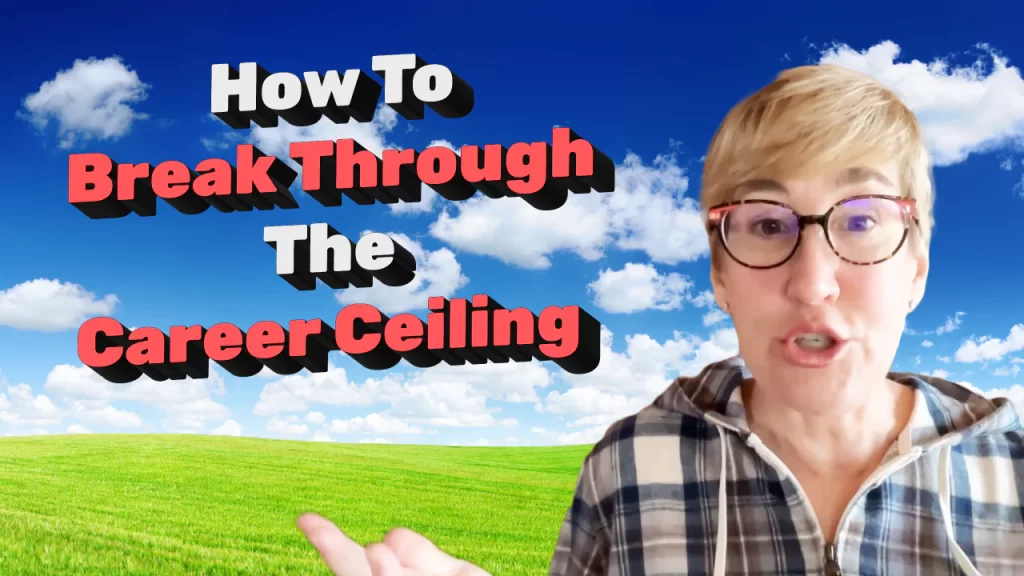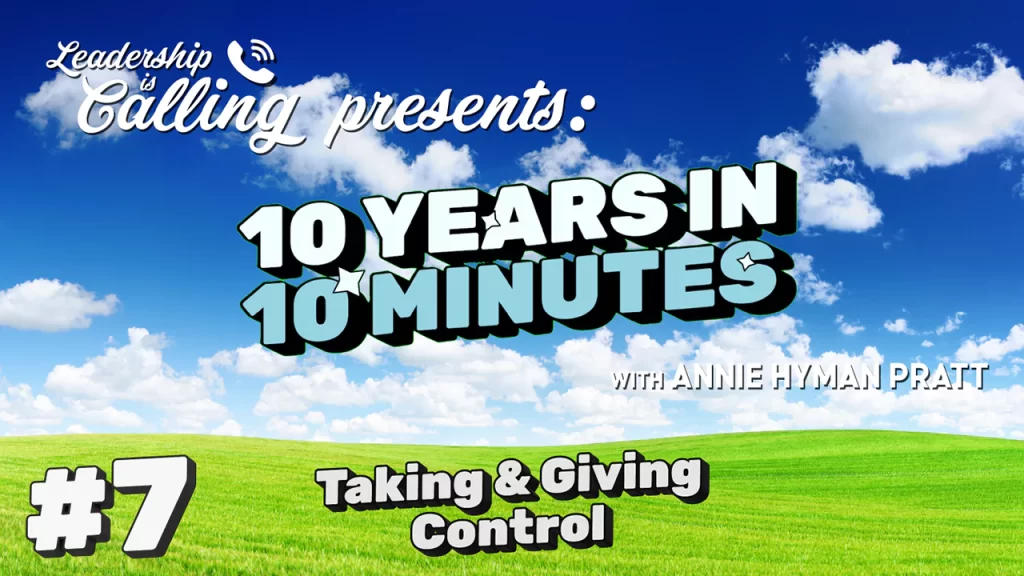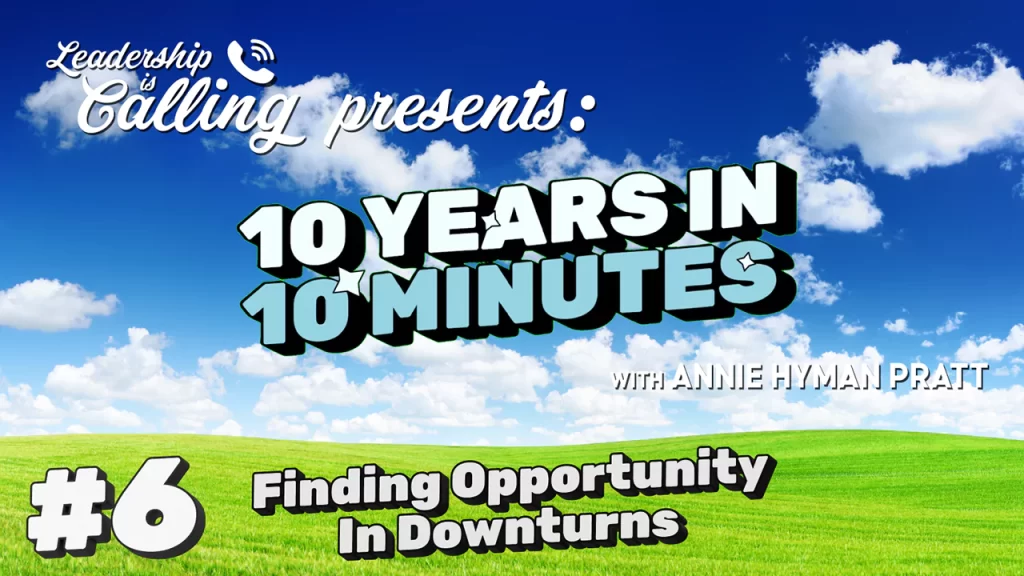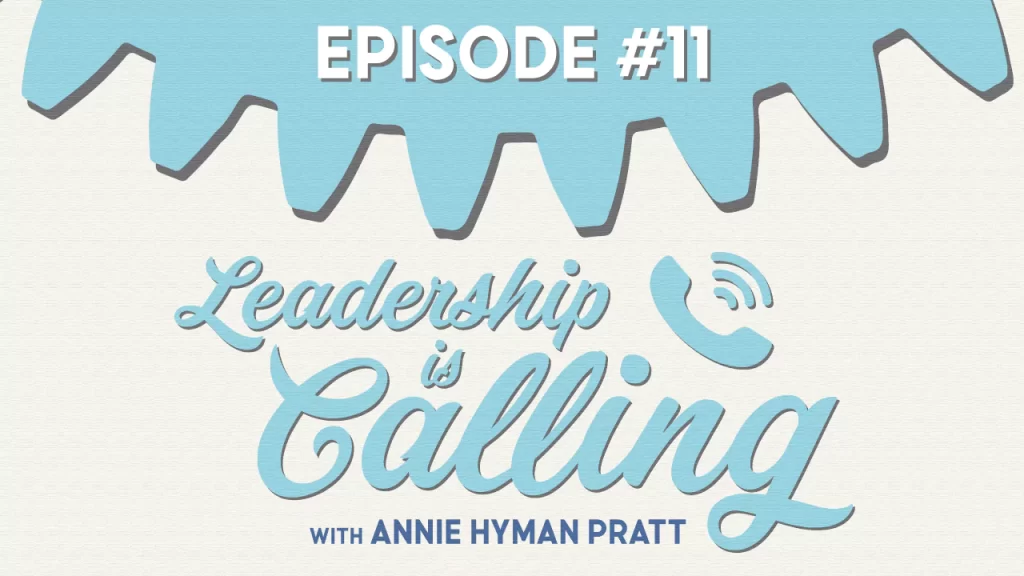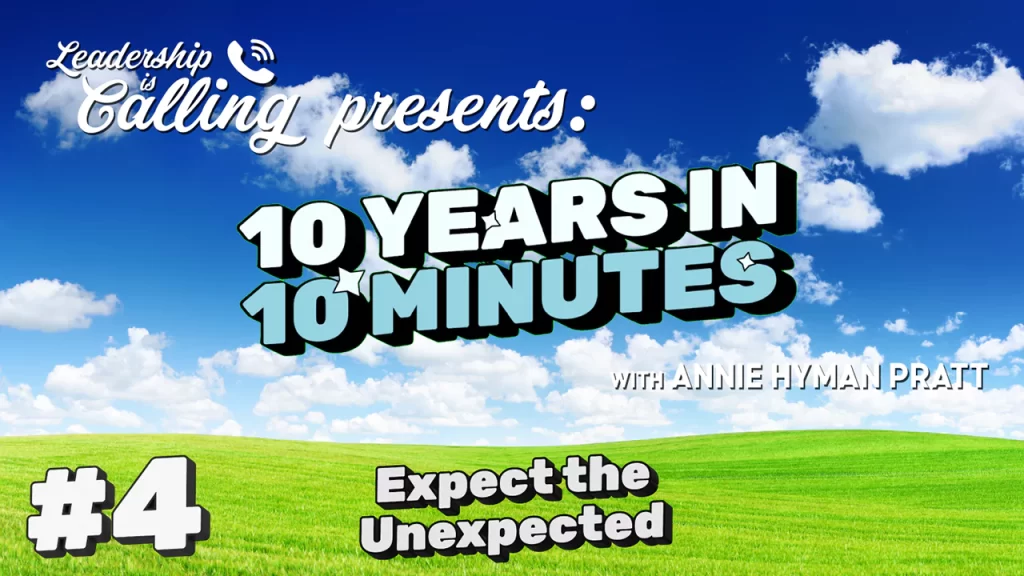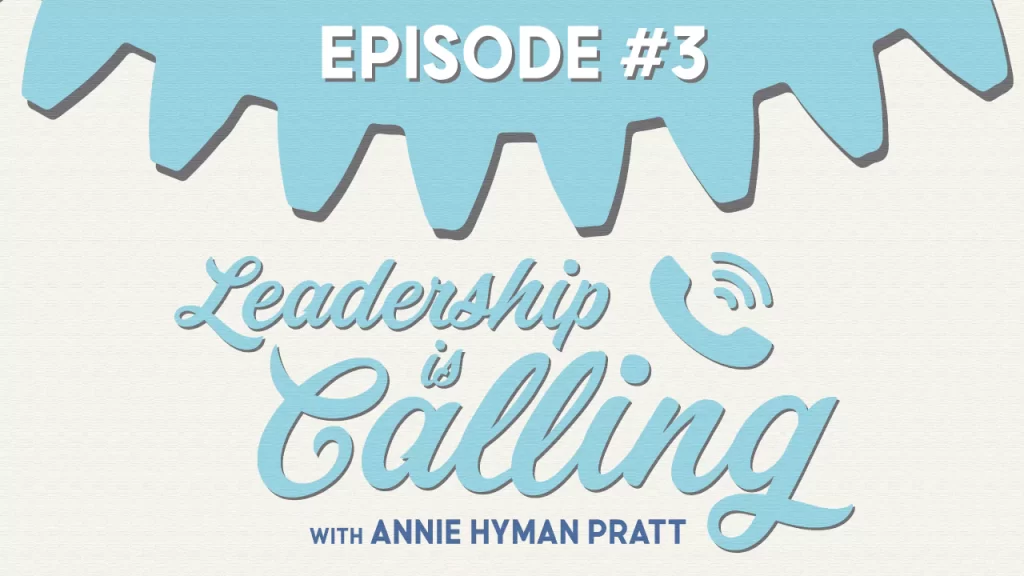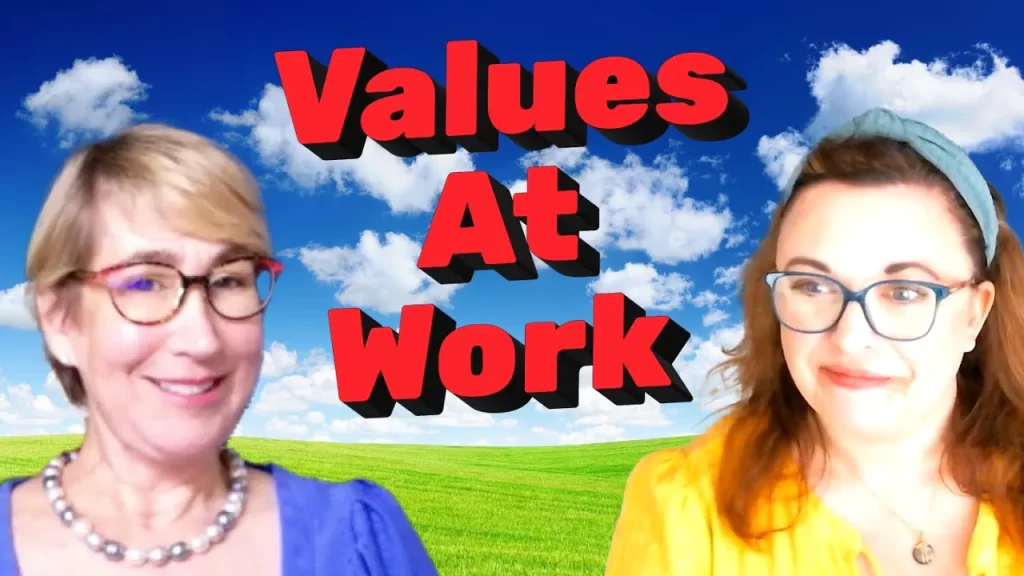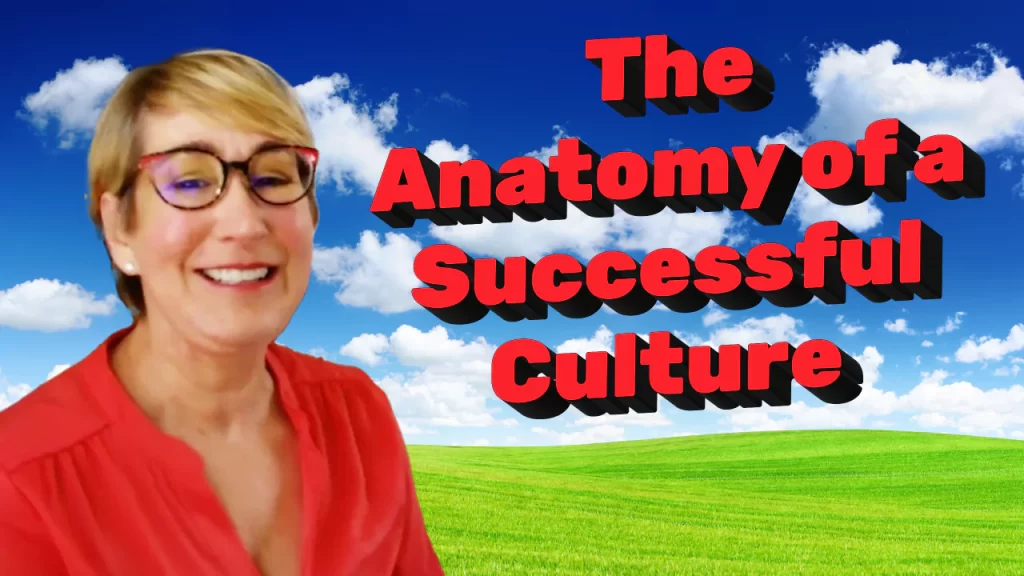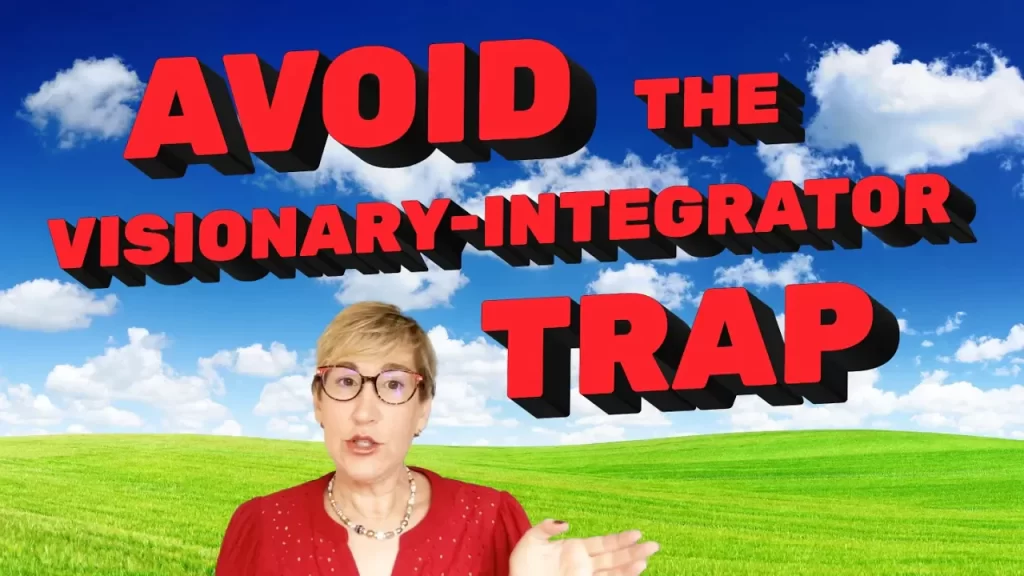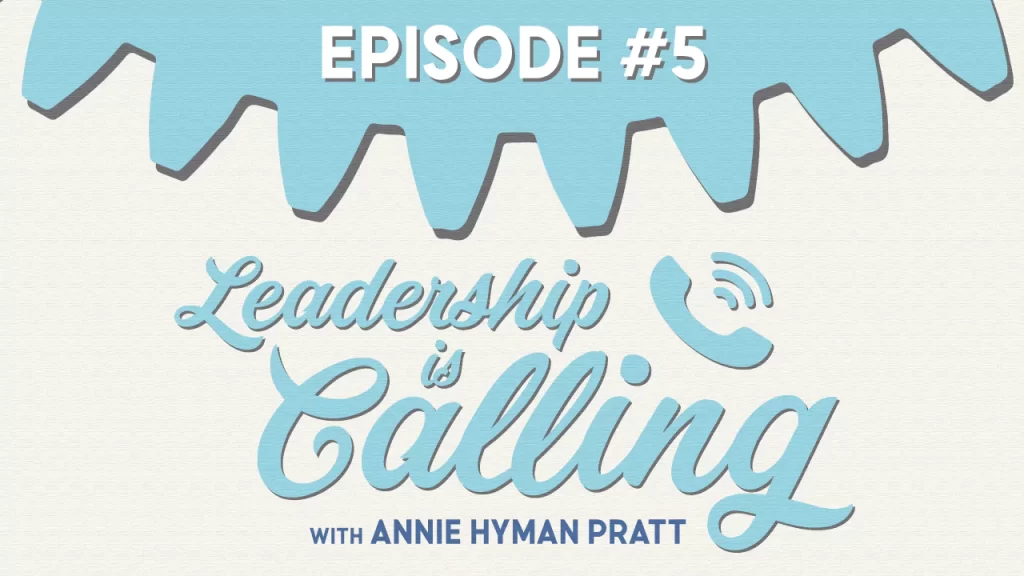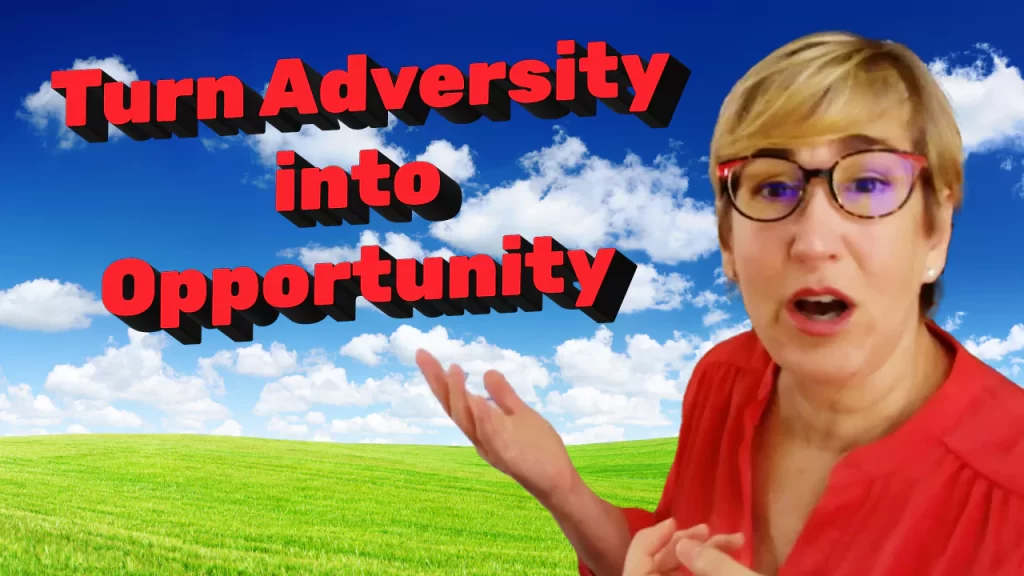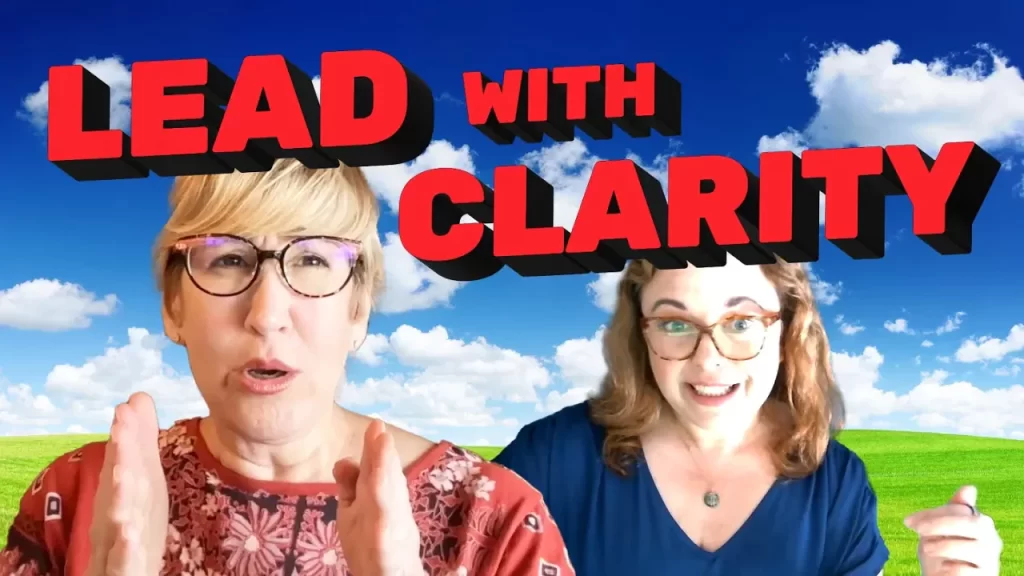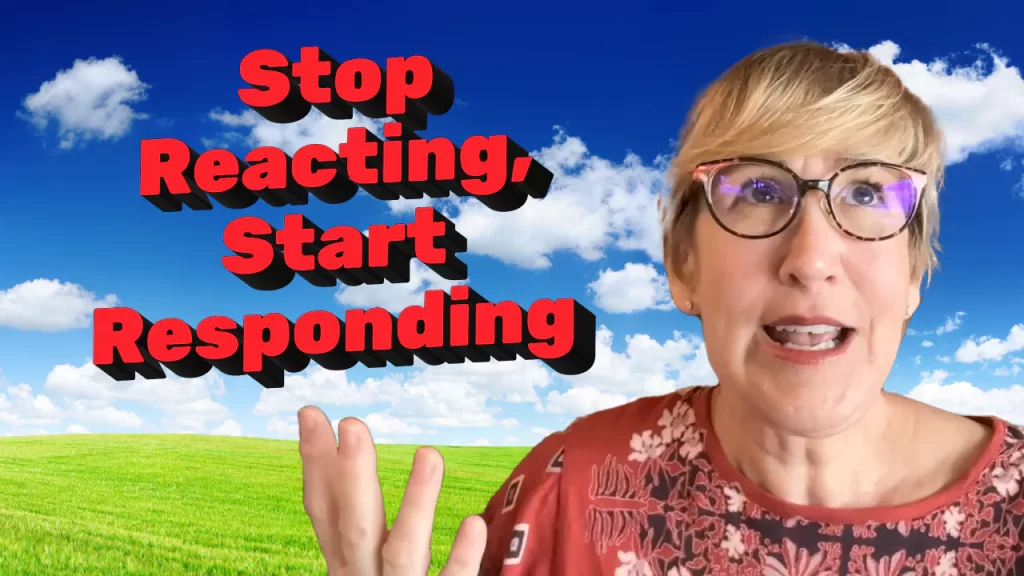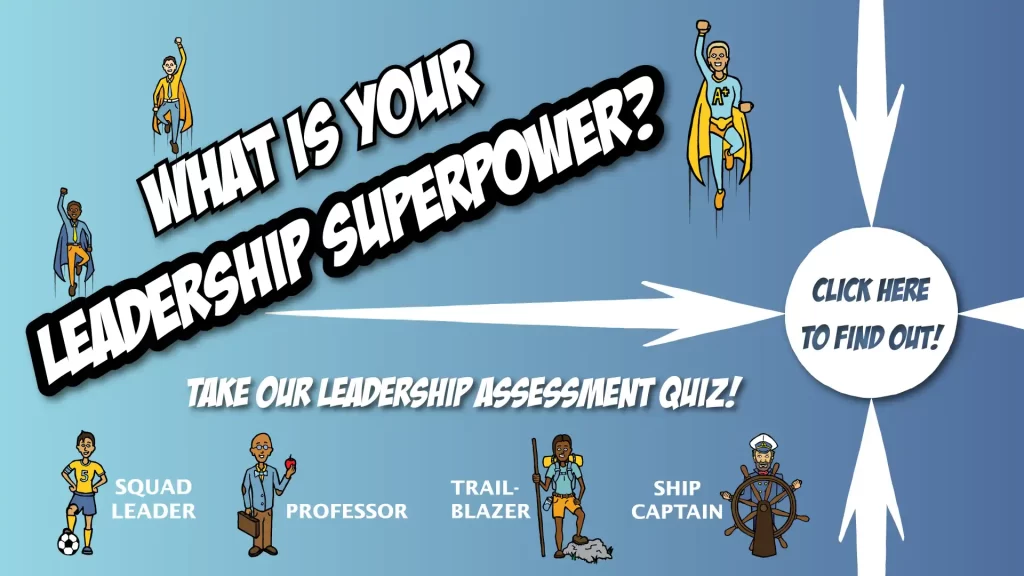Episode #52: How Your Judgments About Your Team Can Limit Success (Part 1)
Leadership is Calling Episode #52
Annie Hyman Pratt
- Description
- Transcript
How Your Judgments About Your Team Can Limit Success (Part 1)
“The thing that makes it a judgment is when you have the evaluation and you put a moral label on it.” – Annie
Do your judgments about your team limit their potential? Many CEOs fall into the “crystal ball fallacy,” labeling team members as “good” or “bad” – hindering collaboration and results. This video introduces the powerful concept of letting go of judgment and equips you with practical techniques to shift your perspective. Discover how moving beyond good/bad thinking can:
- Unlock creativity and innovation in your team
- Boost team morale and engagement
- Achieve breakthrough results togethe
Annie explains how leaders often make snap judgements about their team or situations, labeling things as bad or wrong. This type of premature judgement closes your mind to opportunities. You can’t predict the future, so don’t limit your thinking by calling things good or bad too soon. Keep an open mind.
Key Points
- Judgments close your mind to other possibilities
- You can’t predict the future so don’t label things as good or bad
- Even bad situations can lead to growth in hindsight
Related Resources
Leadership Skills: The People Part
Leadership Development Articles: The Control Trap! | Relationship Repair: The Key to a High-Performing Team
Downloadable Leadership Tool: The 5-Day Appreciation Journal: A Culture of Caring

Auto-Generated Transcript – unedited version
How Your Judgments About Your Team Can Limit Success (Part 1)
Hey, everyone, it’s Annie. In one of our last videos I was talking about CEO and leaders’ judgment of others, meaning like negative judgments that they can hold of other people, especially on their team. Right. So things like, you know, “I think my team messes up too much.” “I think they’re lazy.” “I think that they are, you know, not taking the time to think.” “I think that they don’t have enough.” How would I say they aren’t thinking about the business results enough? They aren’t dedicated enough.” There’s so many things that people can be thinking, and the point of the last video was that holding those kinds of judgments, holding those kinds of judgments.
The thing that makes it a judgment is when you have the evaluation and you also put a moral label on it. Okay? And the moral label is good, bad, right? Wrong. That’s how we know. So, you know, it’s like, if something happens and our house burns down, we, you know, we say, “My gosh, my house burned down,” that’s a fact. But then if we go to the place and that’s bad, that’s bad. That’s the moral judgment part. Okay?
Now, certainly, if feels bad in the moment feels bad. And this is kind of an extreme example, I’m not sure that this is the best example, the best analogy. But, you know, at the moment, we feel bad. And so we kind of take it into the fact realm of like it is that so in business when we do this, it’s a giant problem. It’s a giant problem because when we start putting a good, bad right wrong on it, then we have actually closed our mind. We’ve already decided something and now we have a very narrow perception of the thing and the environment of what’s happening.
Instead of being able to look at a situation or person or whatnot and have a much broader perspective of what’s the opportunity here, what’s really going on, what how could I hold this differently? Because in business, your house kind of burns down all the time or rooms catch on fire. I’ll say it that way. But, you know, if you don’t want to deal with problems and unexpected change and things not going to plan, it’s like not going into business. It won’t be for you because the outside environment is changing.
So often it’s changing, you know, like every second of every day it changes and we do business with humans who, you know, do some really great things and do some things not so great. Like it just, you know, it just things will go differently than planned all the time. So if we are in a constant state of judgment of every time something doesn’t go according to plan, every time something happens that we don’t particularly like or that doesn’t feel good in the moment, if we judge that as bad or wrong, then we put ourselves in a place where we can’t grow, where we can’t see the situation or the people differently.
And let me give an example of that and how limiting it is. Let’s say that you have a company and you have a team that’s led by a CEO who you love, who the whole team just loves. And this CEO has done a fabulous job of getting you to the spot that you are great. Those we love CEOs like that. And then let’s say that the growth has kind of stopped and we’re trying to figure out why, trying to figure out, you know, we sort of noticed some things that maybe the CEO could do differently. But we know how much the CEO is loved and we decide right then and there, “That’s good.”
Having a CEO that’s, you know, super loved is good. Not having them would be bad. So now we have taken our choices, our ability to kind of look at all the options of ways that we might get new growth. And we’ve we’ve done this with them. We’ve decided that we’re not going to look at changing the CEO and and now we are going to, you know, now our choices for what we can do for growth are super limited.
That is a kind of a classic thing in business that becomes a giant problem, because when we narrow our choices, we can’t even make a good evaluation. It might indeed be that keeping our CEO exactly as is is the right move. But we don’t know until we have the opportunity to compare it to what would happen if we brought in a CEO that was more skilled at this stage of business. What would happen if we changed the structure of how the CEO role works? What would happen if we, I don’t know, did some training of the team and brought more leaders into the C-suite.
There’s all kinds of things that we want to compare our, you know, our options to before we would judge, before we would say definitively letting, you know, shifting the role of general person out of CEO role or making a big change. There would be bad. We don’t know that. And we certainly can’t limit our thinking, our business thinking by holding that judgment so strongly. Right.
So this is what I, I kind of think of as CEOs and leaders often think that they have like a crystal ball for what the future holds, that they you know, that they think “I know what would be good and what would be bad.” The truth is we don’t know. And I will tell you, in an example of a CEO and that kind of role, etc., there are plenty of times that those roles change with, you know, no, no intent whatsoever to change the role.
People move, they find new jobs, life circumstances change, all kinds of things can happen. So then we get a whole other person in a role and we start in a place of, you know, of anguish and tears of like, “No, this is so bad that this happened.” And then later we’re like, “Wait a minute, there’s actually some benefits here. We’re starting to see some growth. This actually turned out pretty good.”
We would’ve never even done this if this person hadn’t left on their own volition. So. So in that case, it’s kind of like the old parable of the farmer. And I’m sure most people have heard this looks like we don’t know what’s right, wrong, good, bad, right. That parable is, you know, there’s a farmer and he has some neighbors and he has a horse, and the neighbors are like, “So great, you have a horse.” And then he’s like, “Who knows what’s good or bad?”
And then the next day the neighbors come by and the horses run away and they’re like, “It’s terrible that your horse ran away.” And he’s like, “I don’t know. Who knows what’s good or bad?” And then the horse comes back with three other horses the day after that, right? And they’re like, “My gosh, this is so awesome. That’s really great.” And he’s like, “I still don’t know what’s good about it.”
And then, you know, his daughter gets on one of them and she breaks her leg and she winds up in the hospital and they’re like, “That’s terrible.” And so, okay, so that parable kind of goes on. And the point of it is we don’t have a crystal ball for the future. We don’t. And because we don’t, we don’t know what’s good or bad. And it’s a big, big part of relieving yourself of judgment, of being able to stop yourself from judging things all the time.
There’s a tool. It’s kind of like a toolbox. There’s a bunch of different techniques and habits to pick up for that. You know, remembering having the awareness of like, “I don’t have a crystal ball. I don’t know if this will be good or bad.” And by the way, sometimes it may feel bad for a while. And you look back years later and you’re like, “My gosh, I’m so glad we went through that because we would not be successful where we are now had we not gone through a very difficult time that didn’t feel good at the time.”
And to be successful in, you know, any situation, whether it feels good or feels bad, is going to rely on us. Being able to keep our judgments weighed down. We can acknowledge it feels bad, but that doesn’t mean it is bad. It just feels bad in the moment. We don’t know how it’s going to turn out. We don’t know. We don’t have a crystal ball. And I have discovered in my life that most things now, the vast majority of things now that I look back on at the time felt terrible. I’m so glad they happened because they’re some of my most important learnings.
And at the time, you know, I even had a lot of self judgment of like, “I should not be going through this. I should have been smarter in this situation,” you know, whatever it is, you know, “I should have “I feel like I brought this on to myself,” etc. What a fool, and it’s not true. It’s not true. And those were some of my best learning situations where some of the ones that felt the worst at the time were, I am really glad I got through them, really glad I had them.
So that’s what I wanted to share with you today. Remember, you don’t have a crystal ball, so there’s no need to judge things as good or bad. It just limits you and your ability to succeed. So I’ll see you next time and bring another tool to your toolbox for releasing judgment.

